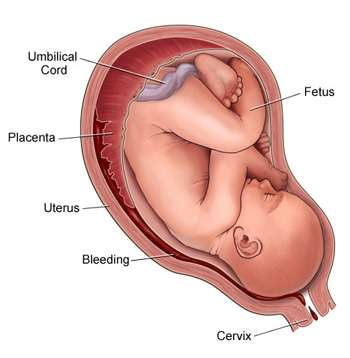Infectious Diseases
Find your care
Whether you need a preventative examination, pregnancy care or treatment for a gynecological condition, our OB/GYN specialists are here for you. Call 310-794-7274 to schedule an appointment today.

Affiliated Physicians: Maternal Fetal Medicine
Infectious diseases and pregnancy
Infections during pregnancy can pose a threat to the fetus. Even a simple urinary tract infection, which is common during pregnancy, should be treated immediately. An infection that goes untreated can lead to preterm labor and rupture of the membranes surrounding the fetus. Some infectious diseases include:
- Toxoplasmosis
Toxoplasmosis is an infection caused by a single-celled parasite named Toxoplasma gondii. Although many people may have toxoplasma infection, very few have symptoms because the immune system usually keeps the parasite from causing illness. Babies who became infected before birth can be born with serious mental or physical problems. Toxoplasmosis often causes flu-like symptoms, swollen lymph glands, or muscle aches and pains that last for a few days to several weeks. Mothers can be tested to see if they have developed an antibody to the illness. Fetal testing may include ultrasound, and/or testing of amniotic fluid or cord blood. Treatment may include antibiotics. The following measures can help prevent toxoplasmosis infection:- Wear gloves when you garden or do anything outdoors that involves handling soil. Cats, who may pass the parasite in their feces, often use gardens and sandboxes as litter boxes. Wash your hands well with soap and warm water after outdoor activities, especially before you eat or prepare any food.
- Have someone who is healthy and not pregnant change your cat's litter box. If this is not possible, wear gloves and clean the litter box daily (the parasite found in cat feces can only infect you a few days after being passed). Wash your hands well with soap and warm water afterward.
- Have someone who is healthy and not pregnant handle raw meat for you. If this is not possible, wear clean, latex gloves when you touch raw meat and wash any cutting boards, sinks, knives, and other utensils that might have touched the raw meat. Wash your hands well with soap and warm water afterward.
- Cook all meat thoroughly, that is, until it is no longer pink in the center or until the juices run clear. Do not sample meat before it is fully cooked.
- Food poisoning
A pregnant woman should avoid eating undercooked or raw foods because of the risk of food poisoning. Food poisoning can dehydrate a mother and deprive the fetus of nourishment. In addition, food poisoning can cause meningitis and pneumonia in a fetus, resulting in possible death. Tips for preventing food poisoning include:- Thoroughly cook raw food from animal sources, such as beef, pork, or poultry.
- Wash raw vegetables thoroughly before eating.
- Keep uncooked meats separate from vegetables and from cooked foods and ready-to-eat foods.
- Avoid raw (unpasteurized) milk or foods made from raw milk.
- Wash hands, knives, and cutting boards after handling uncooked foods.
- Sexually transmitted diseases
- Chlamydia--infections such as chlamydia may be associated with premature labor and rupture of the membranes.
- Hepatitis--an inflammation of the liver, resulting in liver cell damage and destruction. Five main types of the hepatitis virus have been identified. The most common type that occurs in pregnancy is hepatitis B (HBV). This type of hepatitis spreads mainly through contaminated blood and blood products, sexual contact, and contaminated intravenous needles. Although HBV resolves in most people, about 10 percent will have chronic HBV. Hepatitis B virus can lead to chronic hepatitis, cirrhosis, liver cancer, liver failure, and death. Infected pregnant women can transmit the virus to the fetus during pregnancy and at delivery.